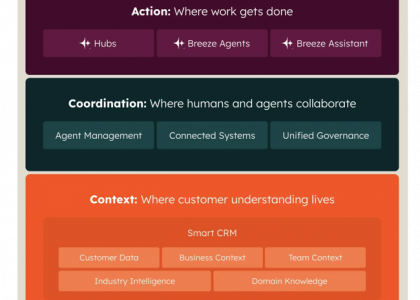” Saying you ‘recommend’ rather than ‘like’ something makes people 32 percent more likely to take your suggestion.”
“Adding more prepositions to a cover letter makes you 24 percent more likely to get the job.”
“And saying ‘is not’ rather than ‘isn’t’ when describing a product makes people pay three dollars more to get it.”
Source: HarperCollins PublishersThese are just a few examples of the power of language cited by Jonah Berger in his latest book, Magic Words: What to Say to Get Your Way (HarperCollins Publishers, 2023).
Jonah Berger is a professor of marketing at the University of Pennsylvania’s Wharton School and the best-selling author of Contagious, Invisible Influence, and The Catalyst.
He has published over 80 articles in top-tier academic journals, and his work is frequently covered in popular media outlets like The New York Times and Harvard Business Review.
Berger is a recognized authority in the field of consumer language research, which can be generally defined as research concerned with the language used and consumed by marketplace participants such as consumers and marketers.
Recent advances in natural language processing and machine learning, together with affordable access to massive computing power, have raised interest in the field of consumer language research and made larger, more meaningful studies technologically feasible and economically practical.
Most marketers recognize that effective content is essential for marketing success. However, marketers don’t always realize that minor changes in the specific words they use can have a major impact on content effectiveness. Magic Words is a worthwhile read because it raises marketer awareness of this important topic.
What’s In the Book
Jonah Berger spells out his rationale for writing Magic Words in the Introduction.
“. . . while we spend a lot of time using language, we rarely think about the specific language we use. Sure, we might think about the ideas we want to communicate, but we think a lot less about the particular words we use to communicate them . . .
The right words, used at the right time, can change minds, engage audiences, and drive action . . .
This book uncovers the hidden science behind how language works and more important, how we can use it more effectively.”
(Emphasis in original)
Berger devotes most of the book to a discussion of six categories of magic words. Specifically, he focuses on words that:
Activate identity and agency (Chapter 1)Convey confidence (Chapter 2)Ask the right questions (Chapter 3)Leverage concreteness (Chapter 4)Employ emotion (Chapter 5)Harness similarity (and difference) (Chapter 6)
In Chapter 7 of Magic Words, Berger argues that words “. . . not only influence and affect the people who listen to or read them, they also reflect and reveal things about the person (or people) who created them.” (Emphasis in original) Therefore, he contends, language science techniques can be used to detect and reveal societal beliefs and biases.
Chapter 5 of Magic Words exemplifies the kinds of insights found throughout the book. In this chapter, Berger explores why emotional language enhances engagement in most circumstances. He discusses the value of tapping into both positive and negative emotions and why it’s important to move frequently between positive and negative emotions whenever possible. He also explains why creating some uncertainty can enable your content to hold attention.
My Take
Magic Words is a thought-provoking book that would be useful for anyone who needs to communicate more effectively and persuasively. The fact that just about everyone has this need at least occasionally explains the widespread appeal and popularity of the book.
Magic Words is a particularly valuable resource for people like marketers and salespeople whose professional success is largely dependent on their ability to be effective and persuasive communicators.
The book is also an easy read because Jonah Berger’s writing style is engaging. He is an academic with the rare ability to make a complex topic accessible to a non-academic audience. He uses real-world examples and anecdotes throughout the book that any reader can relate to.
One of the book’s most important lessons for marketers is that the “magic words” discussed in the book aren’t equally magical in all circumstances. Which words will work best depends on the context in which the words are used.
In Chapter 4, for example, Berger writes that concrete words are usually more effective than generic words. Concrete language signals that you understand the specific needs of a prospect or customer, and it makes your message easier to understand and more memorable. However, Berger also writes that abstract language often works better when the goal is to convey the potential of an idea, a new product, or a new business.
In every category of the magic words he discusses, Berger points out that there are “exceptions to the rule,” or more accurately, that some circumstances will call for a different, and perhaps contradictory, approach.
So, in the end, Magic Words does two things that make it a valuable read for marketers. First, it demonstrates the power of specific language choices. And second, it reinforces the over-arching principle that context should ultimately dictate the choices you make. If you’re involved in creating content, Magic Words should be on your reading list.





